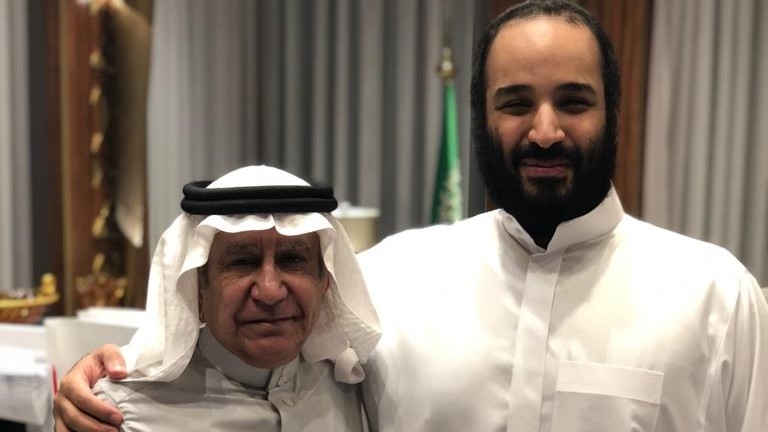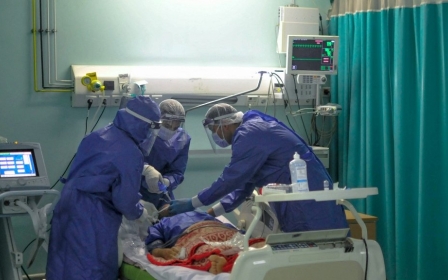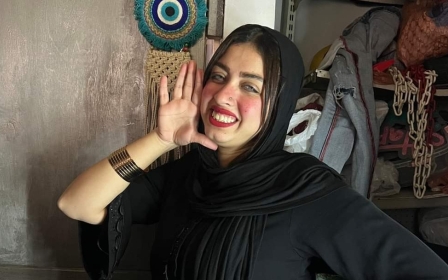Sisi's economic model: Saudi writers' criticism prompts rare Egyptian backlash

Prominent Saudi Arabian academics have embarked on rare criticism of the economic model of Egyptian President Abdel Fattah el-Sisi, prompting a backlash from the president’s supporters.
Egpyt's economy has struggled in recent months with growing inflation, currency devaluations and a hike in the price of basic food items.
Sisi has insisted that the government knows best and that the crisis is a normal outcome of global factors affecting the rest of the world.
But a number of public figures in the Gulf have challenged Sisi’s reassurances and expressed doubts about his economic model.
Kuwaiti MP Osama Al-Shaheen recently warned his government against funding Sisi as part of the International Monetary Fund (IMF) loan deal struck last year.
Even Egyptian TV presenter Amr Adib, known for his close links with Saudi officials, has criticised Sisi's economic policies and performance. Adib's daily programme, Al-Hekaya, airs on the Saudi-funded MBC Egypt channel.
Now influential pro-government Saudi academics and commentators have joined the tirade, going as far as to bluntly criticise the role of the Egyptian military in the economy.
Khalid al-Dakhil, an academic and former columnist at the Saudi Al-Hayat newspaper, wrote recently that the current economic crisis in Egypt has its roots in the military coup of 1952 and that Egypt “has not left the mantle of the military since 1952”.
'The army's control of politics and economy in Egypt has not allowed for a different political-economic alternative'
- Khalid al-Dakhil, Saudi Arabian columnist
He added that “the army's control of politics and economy in Egypt has not allowed for a different political-economic alternative”.
Another Saudi academic, Turki Al-Hamad, said Egypt's economy has gone through different stages in modern history. The pre-1952 era was defined by what he called "a flourishing Egypt" model, followed by "the ambitious Egypt" model. He contrasted these models with Sisi's policies, which he said led to “an Egypt of unemployment, economic and political crises, social dilemmas and violent radical fluctuations that do not belong to any model, neither royal nor republican”.
Hamad is known for his support for Saudi de-facto ruler Crown Prince Mohammed bin Salman.
Saudi Arabia has been one of Sisi's main allies and financial backers since his military coup in 2013, which ousted the democratically elected Mohamed Morsi.
Along with the United Arab Emirates (UAE) and Kuwait, Riyadh helped keep Sisi’s economy afloat, with billions of dollars in deposits and aid in the two years after the coup. It is estimated that Egypt has received $92bn from Gulf countries since 2011.
Gulf states later switched t0 investments and acquisitions of Egypt's profitable state-owned assets rather than deposits in the Central Bank, as Cairo struggled to repay its debts and finance its import-dependent economy, embarking instead on lavish spending on new mega-projects with little economic value.
'Insulting their masters'
The criticism of the Egyptian economy has prompted angry reactions from Sisi supporters, who accuse Saudi analysts of double standards and failing to equally criticise their own government.
The most damning criticism, however, came from a senior Egyptian journalist and columnist, Abdel Razek Tawfik, the former chief editor of the state-owned newspaper Al-Joumhouria.
In a lengthy column published by the pro-government website Cairo24 on Wednesday, Tawfik seemed to react to the Saudi writers, attacking them for “insulting their masters".
'The once barefooted and naked, who have only recently started to wear the most luxurious outfits, should not insult Egypt, the pride and mother of the world'
- Abdel Razek Tawfik, Egyptian columnist
“The once barefooted and naked, who have only recently started to wear the most luxurious outfits, should not insult Egypt, the pride and mother of the world,” he wrote in a derogatory language commonly used in the Arab world to describe the residents of the Gulf who derive their wealth from recent oil discoveries.
“It is not the right of the mean, the lowly, and the newly minted to insult their masters,” he added, in a highly unusual critique. “It is not the right of mini-states whose age does not exceed the age of my youngest son to talk about Egypt except with politeness, reverence and respect. If they can buy the voices and trumpets of some dwarves, agents and mercenaries, they cannot buy history, present and future.”
Although Saudi Arabia, the UAE and Qatar vowed to support Egypt with more than $20bn in deposits and investments in the aftermath of the economic crisis prompted by the Russia-Ukraine war, most of that support has yet to materialise.
The latest $3bn bailout deal between Cairo and the IMF is expected to unlock investments from Gulf countries worth $6.7bn in the next three fiscal years. It remains to be seen whether these pledges will be fulfilled. One of the conditions of the deal was the reduction of the footprint of military-owned enterprises in the Egyptian economy.
The IMF deal was the third since the army general-turned-President Sisi came to power. The deals came against the backdrop of a shortage in foreign currency and soaring debts. Egypt's foreign debts rose from almost $40bn in 2012 to almost $155bn in 2022. The Egyptian pound has lost half of its value since March of last year, as Cairo devalued the currency to meet the IMF’s requirements.
It remains unclear whether the remarks by Saudi and Egyptian writers are representative of a shift in Saudi support for Sisi.
"While the theory that Gulf countries will abandon the Sisi regime may appear logical, ultimately it remains speculative," Khalil al-Anani, an Egyptian political scientist, recently wrote for Middle East Eye.
"Despite frustration and anger towards Sisi among his Gulf supporters, it is unlikely that they will abandon him, as he still represents a valuable asset in terms of protecting their interests in Egypt and the region," he added.
"Replacing Sisi could result in a state of confusion and chaos that would negatively affect the region and ultimately also threaten their own interests. A weaker Sisi may still be seen as a preferable option, as it allows for more manipulation and exploitation to achieve the greatest benefit for Gulf countries' interests."
Middle East Eye delivers independent and unrivalled coverage and analysis of the Middle East, North Africa and beyond. To learn more about republishing this content and the associated fees, please fill out this form. More about MEE can be found here.





